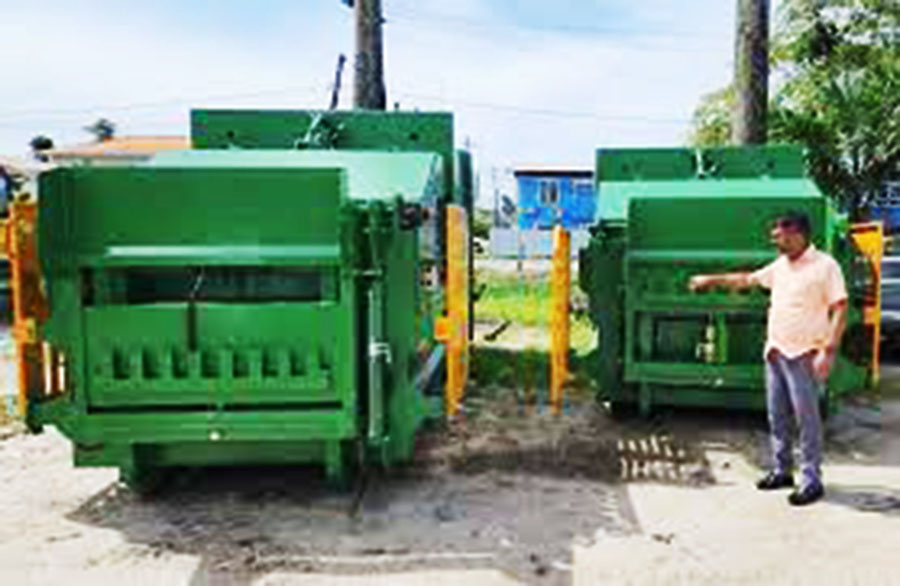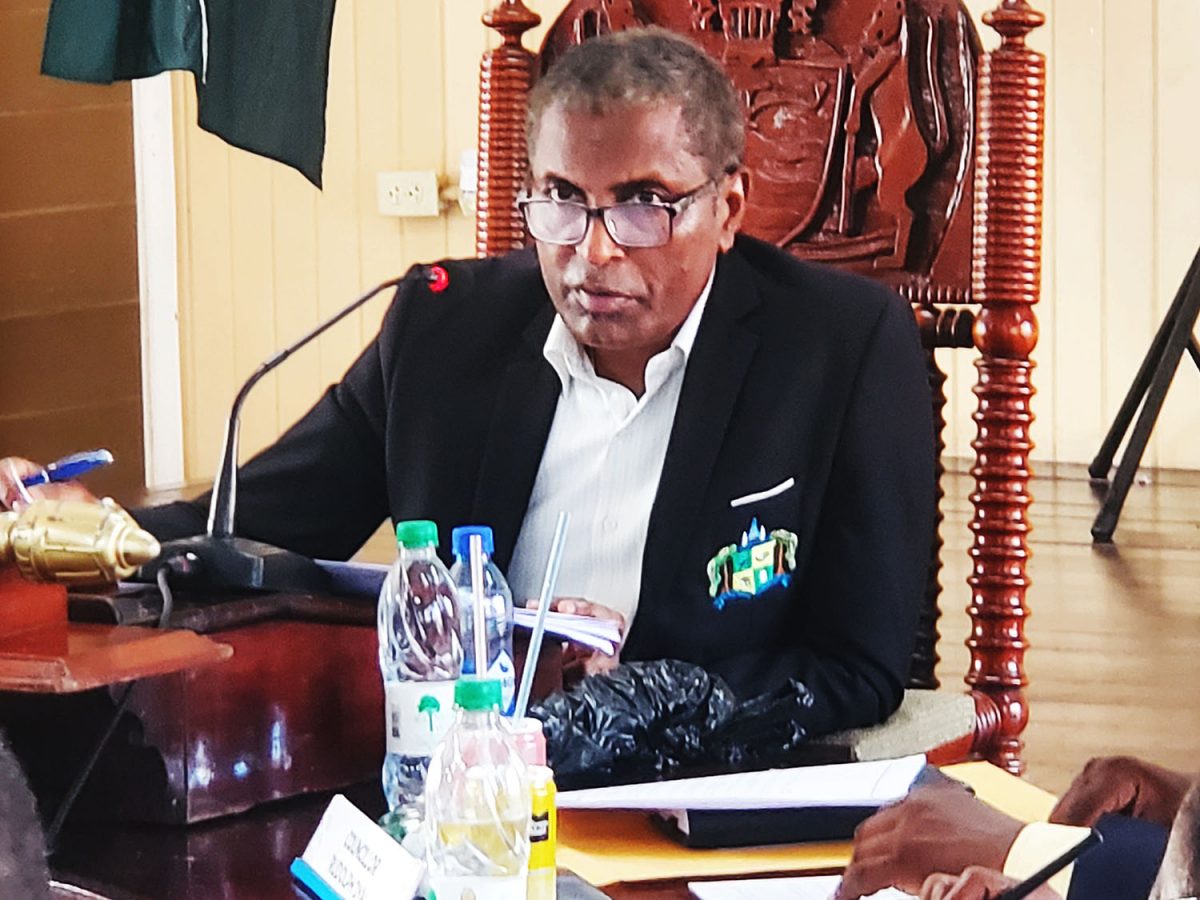By Deneita Fredericks
The Georgetown Mayor and City Council (M&CC) is now seeking legal advice in an effort to recoup $10 million from F&H Com-puter Supplies and Mer-chandisers, following the procurement of parts for two garbage compactors that did not meet the specifications of the council.
This decision was made at a statutory meeting held at the Kitty Market Conference Room yesterday afternoon.
The purchase of the parts was intended to elevate waste management efficiency within the city, however, the acquired parts failed to deliver as anticipated, leading to substantial financial setbacks and an increased burden on taxpayers.

According to Mayor Alfred Mentore, as a result of the inability of the compactors to operate, M&CC is now grappling with monthly expenses amounting to $3 million, solely for the engagement of Cevons Waste Management to address the city’s waste collection needs.
The Mayor had proposed that the parts be returned and the correct ones issued, however PPP/C Councillor, Patricia Chase-Green objected to this as she firmly believed that compensation should be given as well as payment for time lost.
“We need to write to the supplier and be paid for time lost, while in addition, the contract surrounding this purchase needs to be reviewed”, she said.
In June, former George-town Mayor, Ubraj Narine expressed enthusiasm at the purchase in a statement saying: “The acquisition of these compactor units aligns with our city’s vision of creating a cleaner and greener environment for our citizens. By investing in advanced waste management infrastructure, we are taking a proactive approach to tackle the challenges of waste disposal while promoting sustainability”, he said.
However, the ill-fated procurement, has instead become a source of concern for both the city councillors and its administration. The two garbage compactors, whose components were sourced from F& H Computer Supplies and Merchandisers, were anticipated to streamline waste collection and disposal processes, while improving the overall quality of life for residents. However, the equipment’s failure to meet operational expectations has triggered a cascading series of issues.
The compactor units are designed to handle varying types of waste, including general waste, recyclables, and organic matter. This will enable more effective waste separation, leading to better recycling outcomes and reduced landfill usage. The compactors are also equipped with odour-control mechanisms.
Seeking to rectify this situation, the M&CC has turned to legal avenues in order to recoup the substantial amount expended on the procurement of the parts. It was noted that this should serve as a reminder of the importance of thorough due diligence and evaluation when engaging in large-scale procurements, especially those with the potential to influence critical public services.





